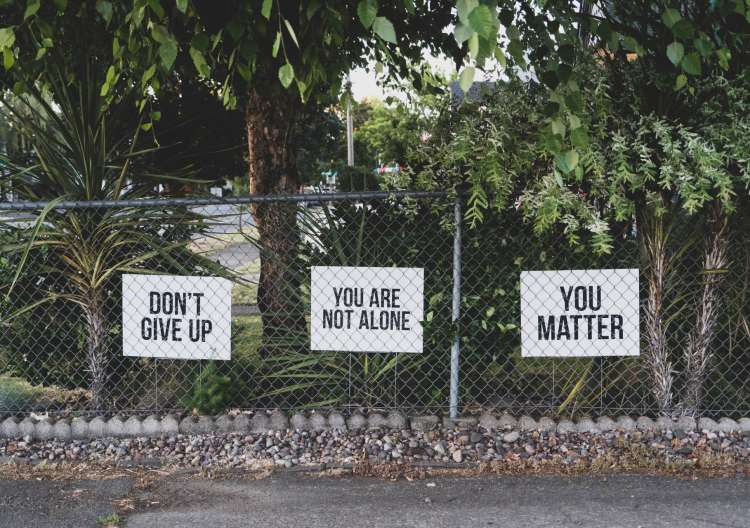During our childhood, we are usually brought up with social and cultural values that our parents hold dear and which are passed on to us.
These become the foundation stones for our future life and we tend to mix with those who share such values. Frequently, they determine who we choose to marry. However, sometimes our standards change as we grow older and we can find that there appears an incompatibility in our marital relationship.
Whereas, we were travelling together, suddenly we seem to be travelling apart. Sometimes our paths diverge towards different destinations.
I have been a marriage counsellor for many years and I have seen that with counselling support, differences can be solved, problems negotiated and destinations made unanimous — but only in some cases. At other times, it is with sadness and regret that some breakdowns are irretrievable and each party has to start afresh on an individual journey and with, may be, a new learning that comes from a greater sensitivity about others and about themselves.
This is in a domestic scenario, but let’s look at what happens in a workplace context?
Values at work
A published mission statement should proclaim the culture and the identity of the organisation. Corporate values and cultural ethics are important to ensure that a company runs smoothly and remains competitive.
It is important that the attitude of all employees are aligned with these principles so that everyone understands one another and good working relationships are built. The alignment of, and commitment to, published standards helps the whole organisation to achieve that mission.
However, when values are out of alignment, people have a different focus and a different agenda which will inevitably result in a changed outcome. When this occurs, performance and productivity can be adversely impacted; there can be poor job satisfaction and creativity and commitment will decrease. The result being that competitive advantage will be lost and, if not recovered, the business itself will be at risk.
As with the breakdown in any relationship, some individuals may choose to leave while others may cause disruption and just accept the status quo if they are risk-averse. Either way, the latent energy and innovation of the individual will not be brought out for the benefit either of themselves or of the organisation.
Corporate values
What are these values that provide the cornerstone of the majority of businesses? Usually they will include integrity, commitment, accountability, diligence, professionalism, adaptability, tolerance, co-operation, team-building and an enthusiasm for success.
The question is: If these values are the bedrock of an organisation, why is it that some employees tell me that they are unaware of them? Is it because they are just not adhered to and individual employees make no conscious decision to follow through? Or is it that the organisation fails to promote their principles as a basic tenet of organisational culture?
It is a fact that competition always increases, leading to profits being challenged and everyone required to work harder. However, if any individual is pushed too far, they can burn out and be of no use either to themselves or the business. At such times of economic change and challenge, some of the most basic factors of employee retention are forgotten and many of the foundation stones left broken and unused.
Sometimes, new employees receive either insufficient or no induction training regarding the company’s aims, values and culture. A mission statement may be either missing or unpublished, or just ignored.
Too often, the claims from a company on their website and publicity brochures are not adhered to within the various levels of the organisation. As ever, fine words are easy to write but harder to put into action.
The guiding principles of any workplace should reflect the aims of its principals and it is the responsibility of senior management to ensure that the ethos of the organisation is published and that there is a measurable allegiance to the fundamental character and spirit of its culture.
Where do you think your organisation fits within these criteria?
Key points
* A mission statement should always be published.
* An organisational culture gives a structural foundation.
* A structure without a foundation can too easily be demolished.
Written by Carole Spiers and reprinted with the kind permission of Gulf News.
Need a Motivational Speaker or Awards Host for your next Conference? Work Stress expert, Carole Spiers will deliver a charasmatic, high-impact keynote presentation, ‘Show Stress Who’s Boss!’ based on her new book, at your next conference. Contact us: [email protected] or call + 44 (0) 20 8954 1593.
Learn How to Deal with Stress: Carole’s book, Show Stress Who’s Boss! shows you how to deal with stress, manage your stress & anxiety and overcome symtoms of stress. You’ll find tools and stress management techniques to make your life stress-free. Inside this book, you’ll find 4 proven steps to relieve your stress symptoms. Buy your personally signed copy and receive a FREE stress test card. www.showstresswhosboss.co.uk. Also available on Kindle.





